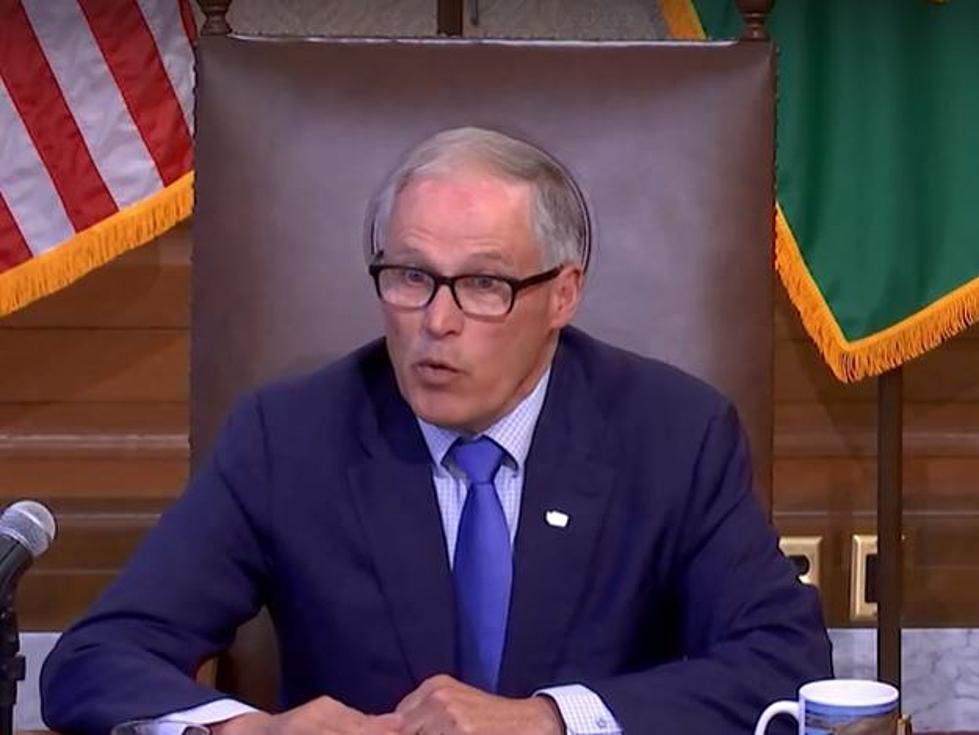
Op-ed: Inslee lied about the cost of the carbon cap and trade program
"This is going to have a minimal impact, if any, pennies. We are talking about pennies.” Governor Inslee’s claims about gas prices and his new carbon cap and trade program fall flat to those of us who’ve had to fill our cars with gas this year.
Very quickly the costly reality has set in as more employers are implementing Return-to-Office policies and commutes are returning to pre-COVID levels. For the first time, Washington has the highest gas prices in the country, something that can be directly attributed to the carbon program which the government claimed would have “minimal impact.” The inaccurate claim from the governor wasn’t a one-off either; other state officials promoted inaccurate and dishonest narratives, ignoring and covering inconvenient facts.
Despite the readily available data clearly indicating the costly outcome of this policy, residents across Washington are now bearing the financial burden, with little to no recourse available to hold the governor or the officials accountable for their false claims. Washington citizens must wield their influence at the ballot box to hold state officials accountable.
Using the data provided by the Department of Ecology, Washington Policy Center’s Environmental Director Todd Myers made the calculation last year that gas prices would increase by about 46¢ per gallon. The Department of Ecology’s climate policy section manager Joel Creswell responded firmly, saying “I’m highly confident it’s not going to be 46 cents per gallon.” Following suit, the Department’s website claimed the impact on gas prices would be “about 1% to 3% in 2023.” We are now halfway through the year and based on calculations made from the cap and trade carbon auctions, gas prices have risen 45¢ higher per gallon thanks to the program, impacting prices about 9%.
So how did officials react to these undeniably high gas prices and the data contradicting their prior claims? The Department of Ecology made sure to change the language on its website, hiding previous claims. State Senator Joe Ngyuen blamed collusion, price gouging, and the Olympic pipeline. Advocacy group Climate Solutions pointed to oil company greed, despite claiming just a week prior that raising gasoline prices was the point of the carbon program. In all cases, nobody is willing to take accountability for being mistaken, or worse, intentionally deceiving Washington citizens. As pointed out by Danny Westneat, a supporter of the tax, if officials had been honest about the cost, would it ever have passed in the first place?
This isn’t how a democratic government should operate. Representatives of the people and appointed officials ought to be checked for this kind of deception. In many cases, by the time the truth is made known, the harm has already been done. With examples such as the harms of school shutdowns being prolonged or the firing of state workers over the now rescinded vaccine mandate, the lack of accountability creates incentives for an “ends justify the means” governance structure.
For citizens, it can feel discouraging to feel so distant from holding officials to the truth. While there is no single solution, making strides in government transparency and voter accountability is a way forward. Thanks to the last signed budget, voters will soon have access to a website that will keep track of the taxes they pay and where they come from, which is a start. Legislators should also consider adding provisions for a check on the governor’s emergency authority, increased access to public records, and pass a constitutional amendment enacting a 2/3rds majority requirement on the passage of new tax increases (something Washington voters have approved five times).
People joke about the dishonesty of politicians, but when we reward them for their deception, why would they act any differently? Ultimately, the best chance we have to hold officials accountable is the ballot box. It’s not a perfect solution, but it’s the only real power afforded to citizens in this system. An engaged citizenry kept informed with honest reporting could choose to clean house. Choosing a system of integrity even if you support the policy outcomes in the short term is a necessary step in maintaining a semblance of honest governance.
The fact that government officials lie isn’t breaking news, but the direct result of those lies makes national headlines. With gas prices at a national high, the deception is more transparent than ever before. Many well-intentioned people might have supported a carbon tax under false pretenses, but once reality sets in they realize they can’t afford it. This is the abusive pattern of a government more focused on its own agenda than on integrity.
If voters care more about the immediate wins they get from dishonest governing than the precedent it sets, they might be in for a nasty surprise down the road. After all, the “minimal impact” of the carbon program turned out to be a whole lot of “pennies.”




